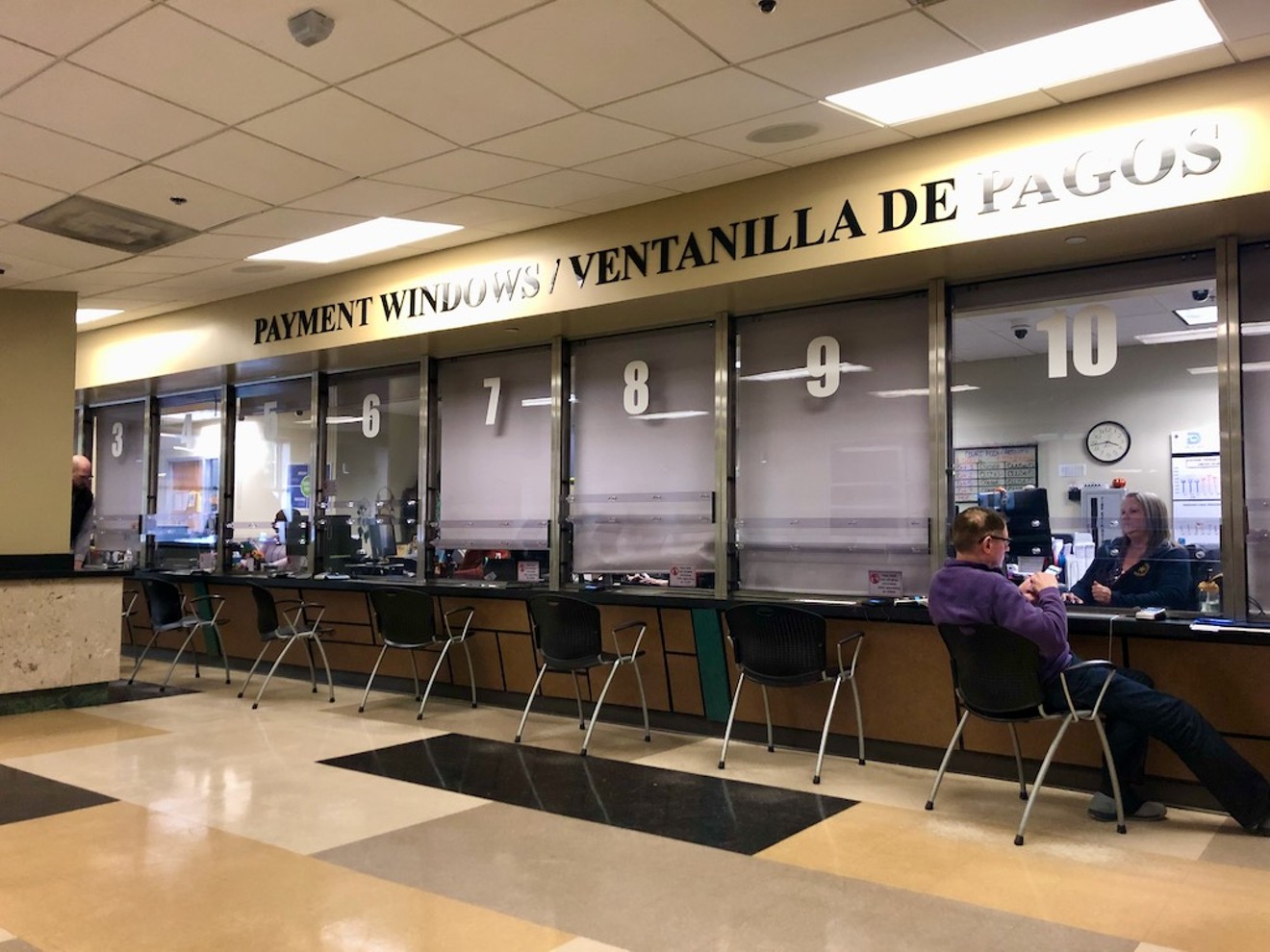He didn’t think much of it. In fact, he forgot all about it — he received no notice or bill — until he recently tried to renew his license. That’s when he discovered that the Bell County sheriff had a warrant out for his arrest and the amount he owed had ballooned to nearly $1,000 after he failed to appear in court.
Calderon lives paycheck to paycheck — he has two school-age kids and works as an assistant at an accounting firm in downtown Dallas — and he hasn’t yet paid off the bill. Without a license, he’s forced to take public transit to work and relies on his parents for help shuttling the kids to practices.
He’s caught up in a system that advocates say unfairly penalizes the poor, trapping them in a maze of legal problems that only multiply for those who lack the ability to pay. Unlike Calderon, many people drive anyway despite lacking a valid license, leading to more tickets, more court appearances and more fees.
According to a report released earlier this week by Texas Appleseed and the Fair Defense Project, a pair of legal advocacy organizations, 70,000 people in the Dallas area had holds put on their licenses last year alone. It’s thanks to a little known program called OmniBase, which traps them in an “endless cycle” of debt, warrants and fees, and even, in some cases, jail time.Once someone is in OmniBase for failing to appear in court or pay a fine, a hold is put on their license, which prevents it from being renewed.
tweet this
“This program is like quicksand. You get a hold, and then all of a sudden you can’t pay that and you’re just drawn further and further into the criminal justice system for something that would be merely an annoyance for someone with money,” said Mary Schmid Mergler, an attorney focused on criminal justice reform at Texas Appleseed. She's one of the report's authors.
OmniBase is officially called the Failure to Appear/Pay Program, but it’s known by the name of the Texas company that manages the database. Once someone is in that database for failing to appear in court or pay a fine, a hold is put on their license, which prevents it from being renewed. Although the program is statewide — city and county courts can opt in — the report focused on the Dallas area, where Mergler said the problem is particularly profound.
Of Texas municipal courts, Dallas trailed only Houston in the number of holds issued in 2018. But the Dallas court gave them out at over double the rate. The researchers examined records of fine-only misdemeanors, low-level crimes such as traffic tickets or public intoxication, and found that 28% of such cases filed in Dallas municipal court resulted in an OmniBase hold.
These holds particularly impact low-income communities, said Mergler, citing the higher rate of holds in less-affluent ZIP codes. Four Dallas ZIP codes are among the top 10 in the state with the most holds, and all are in low-income areas of southern and eastern Dallas.
Texas legislators eliminated a similar program earlier this year. Under the Driver Responsibility Program, licenses were suspended if someone was unable to pay a fine. Fees from the program had been used to fund trauma care centers, but in the last legislative session, lawmakers finally agreed to end the 16-year-old program after they were assured that alternative funding sources had been secured.
But the OmniBase program lives on and in some ways, Mergler said, it's even worse. It affects just as many Texans, and unlike the Driver Responsibility Program, there’s no standard pathway for low-income people to get the fees waived. Instead, they must rely on judges to grant waivers.
In theory, judges are supposed to take circumstances into account when determining an appropriate punishment. But some judges, Mergler said, “will never allow for a waiver, no matter how low someone's income is and no matter how burdensome it is for them to complete community service.”
Of the 167,499 criminal cases that went through Dallas Municipal Court last year, only 27 defendants had their fines waived, according to the report. And in only 4% of cases were the fines replaced with community service.
Debtors' prisons have been outlawed in the United States for nearly two centuries, but failure to pay a traffic ticket can still land you in jail. When someone is picked up on a warrant, even if it’s only a result of failing to pay fines, they’re sent to jail.
“Over the past five years, there has been growing recognition that people are being held in jail and forced to sit out their fines when they can’t pay,” Mergler said. In nearly a quarter of the Dallas Municipal Court cases examined in the report, fines were resolved with jail time.

Lawyers volunteered to help out Dallas residents at a License Recovery Clinic last week.
Amanda Woog/Texas Fair Defense Project
Until then, Austin-based Texas Fair Defense Project is coming to Dallas to help people navigate the process of removing the holds. It held a License Recovery Clinic in Dallas last weekend, staffed by volunteers from the Dallas Young Lawyers Association.
“It's a model that we've been perfecting with UT law students locally over the past two years,” said Amanda Woog, the organization’s executive director. She’s now focused on expanding the program to other cities, like Dallas.
The volunteers helped 46 people one day recently, including Calderon. He’s confident he’ll eventually be able to pay the fines, but he doesn’t think anyone else should be forced to go through the same process.
“It wears on people,” he said. “They just need to write it off instead of just leaving it in the books and making it difficult for everybody.”












